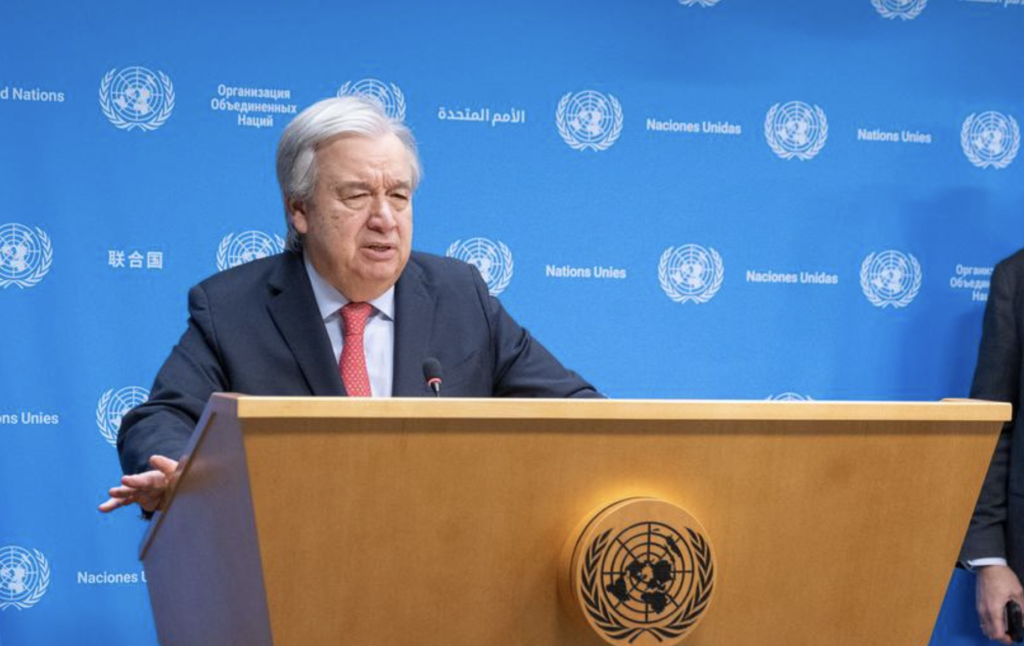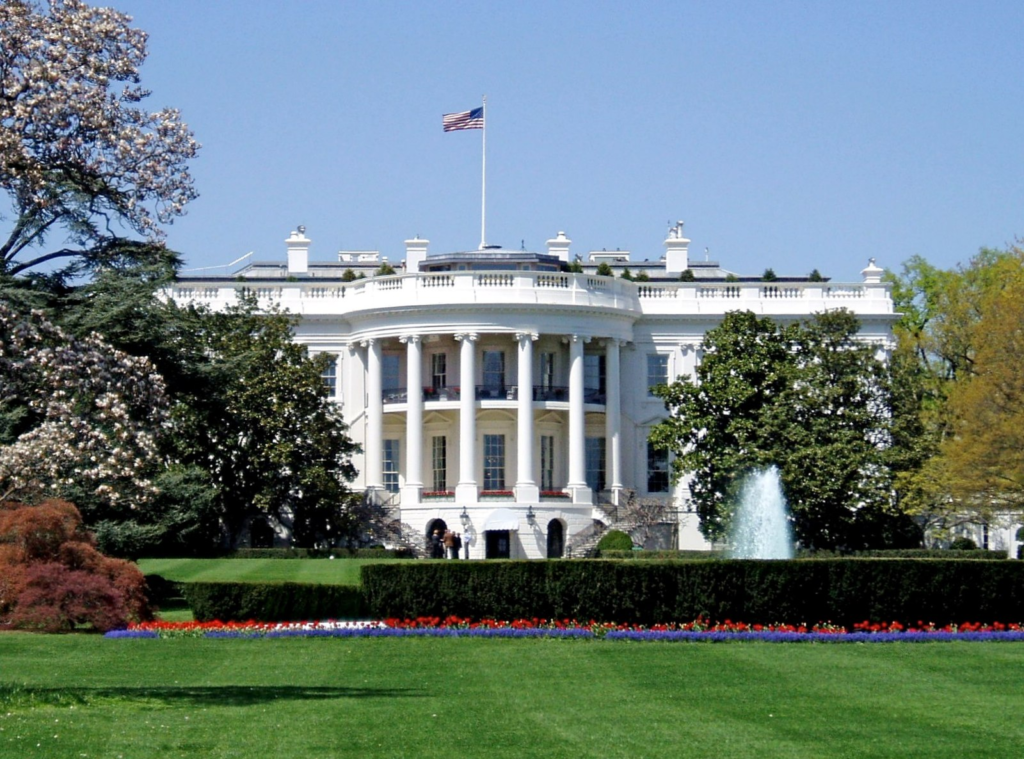UN Resolution on Gaza and the Future of the Israel-Palestine Conflict

By: Ghassan Rubeiz / Arab America Contributing Writer
The failure of the UN Security Council Resolution to call for a ceasefire in Gaza disappointed the entire Arab world, the Global South, and a majority of Western nations. It was hard to celebrate Christmas for the twenty million Middle Eastern Christians. It was difficult to fathom the failure of the world community to call for the immediate cessation of hostilities. It was stressful to see attitudes harden and opportunities missed. Maddening it was, to watch decision makers follow the same policies which in the past led to the worsening of the conflict. The voices of peace and justice are not yet in harmony.
US and Israel Tied Together
During the recent, intense negotiations of the UN Security Council, Washington and Tel-Aviv were well coordinated. President Biden and Prime Minister Netanyahu remain determined to destroy Hamas, even if Gaza had to go too. The US and Israel have been coordinating policy, war strategy, public relations and diplomacy.
Diluted Security Council Resolution

An international call for the cessation of hostilities would have allowed sufficient and fast delivery of humanitarian aid and opened negotiations for political solutions. To provide adequate aid, four conditions were required, asserted Antonio Guterres, the UN Secretary-General: environmental safety; staff security; effective logistics, and capacity to import necessities from abroad.
Politically and morally, rejecting a realistic resolution would have been more effective than passing a watered-down, toothless resolution. There was no need for the fourteen members of the Council to wait desperately for the US to join them in calling for a ceasefire.
It Is Not About Whom to Blame
The rationale of the White House to delete the “ceasefire” clause from the original text of the Resolution is not convincing. Linda Thomas-Greenfield, the US Ambassador to the UN, complained that the proposed text of the Resolution did not condemn Hamas for its October 7 attack. Would Thomas-Greenfield have been willing to condemn Israel too, for its disproportionate retaliation to October 7? Blaming either or both sides is not relevant to stopping the killing of more innocent civilians, which should be the main intent of the resolution.
White House Hypocrisy

The inconsistency is glaring between the US’s expressed concern for humanity – including respect of international law- and Washington’s support of Israel’s ongoing war crimes. Both Israel and the US are aware of their responsibility for such crimes, but they seem to assume that they can get away for perpetrating these atrocities without facing consequences. In a recent column, Colbert King of the Washington Post opined that both Washington and Israel are well aware of the suffering they are inflicting on Palestinians. With anguish King asks: Can it be that Israel has actually dropped some 29 000 bombs on Gaza? He adds: You do not have to be a Middle East expert to know that the 3 million Palestinian living in the West Bank, most of which is under full Israeli control, are treated as dirt by many of the Israeli settlers. King reminds us that: The White House knows it, Congress knows it,the international community knows it. And many Christians know it, too. (Washington Post, December 23, 2023.)
Five Questionable Claims
Both Tel Aviv and Washington support five unjustifiable assumptions about what justice should be in the Holy Land. First, that God promised the Holy Land exclusively to the Jewish people. Second, that Israel’s presence in the Land over a limited period in ancient history justifies its sole ownership today of this land of historic Palestine. Third, that it is legitimate to annex conquered Palestinian territories gained in war. Fourth, that Israel’s political and economic achievements justify its occupation of Palestinian territories. Fifth, that the long history of Jewish suffering, before and after the Holocaust, justifies the formation of a Jewish state on land encroaching on Palestinian territory.
Facing Quagmire

There is no evidence that the Security Council December 22 Resolution will result in improved safety of the people of Gaza, or reduced attacks on West Bank residents. More than a hundred Palestinians in Gaza died over Christmas Eve. The fatalities continue to rise. Both the US and Israel now face a quagmire, knowing neither how to “dismantle” Hamas, nor whether Hamas can be dismantled, nor what will come the day after.
Events of the last quarter of 2023 have set the stage for what is likely to take place throughout 2024. Regrettably, both sides of the conflict will continue to suffer. In his commentary on the Gaza war, the NY Time’s Thomas Friedman oversimplifies. Yet his analysis often offers something new and significant. In a recent article, he urged Israel to stop the war, accept an offer to free the remaining hostages, and leave Gaza immediately. He opined that:
The Biden team needs to engage Israelis in a loud, blunt, no-holds-barred discussion about how much it has already achieved militarily, how best to consolidate those gains and how to end this war with some kind of new balance of power in Israel’s favor — before Israel sinks itself into the quicksand of Gaza, chasing a perfect victory that is a mirage.
New York Times
But there is a significant detail missing in Friedman’s plan. He assumes that the remaining hostages can be freed without the release of Palestinian prisoners.
Palestinians Are Determined Not to Leave Their Homeland
When asked why this intensity of collective punishment on Palestinians?, Israel’s defenders tell us they do not wish to face a repeat of October 7. Sadly, Israel does not realize that the 29 000 bombs dropped on Gaza will create new enemies for the occupier. More importantly, twelve weeks of killing and destruction, and denial of access to water, food and medicine, all such attempts at elimination and displacement of people, have not succeeded in making Palestinians leave their homeland. The 7.2 million Palestinians still living in historic Palestine are not going anywhere. They will, sooner or later, break the apartheid system, simply by staying on the land and demanding equal rights.
Assessment of Palestinian Resistance and Israel’s Pursuit of Democracy

Palestinians might in the future decide to intensify civil resistance. They have built over the years an impressive repertoire of tactics and movements calling for justice. The Boycott, Divestment and Sanctions, BDS, movement has been very successful. Might this type of resistance open possibilities for partnership with moderate Israelis to end apartheid? Dismantling apartheid from within, peacefully, looks like the most logical solution.
For the moment, the Israeli peace camp has been weakened by the ongoing Gaza war and the rise of the religious right. But the Jewish voice of justice is still active in Israel and in the US. For future state-building, Israelis will have to choose between apartheid and democracy.
Ultimately, justice and peace will prevail.
Ghassan Rubeiz is the former Middle East Secretary of the World Council of Churches. Earlier he taught psychology and social work in his country of birth, Lebanon, and later in the United States, where he currently lives. For the past twenty years, he has contributed to political commentary and delivered occasional public talks on subjects related to peace, justice, and interfaith. You can reach him at rubeizg@gmail.com
The views and opinions expressed in this article are those of the author and do not necessarily reflect the position of Arab America. The reproduction of this article is permissible with proper credit to Arab America and the author.
Check out Arab America’s blog here!


